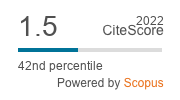Riders and training have been implicated as contributing to poor performance and adverse horse welfare outcomes in endurance competitions (‘rides’). This study described the experience, riding practices and training methods of a cohort of 21 Fédération Equestre Internationale (FEI: 80-160 km) level endurance rider-owner-trainers in New Zealand. Data were collected via face-to-face survey and descriptive statistics calculated. Respondents had a median 13 (interquartile range [IQR] 9-15) years’ experience in domestic competition and 7 (IQR 4-10) years in FEI competition. Respondents were mostly amateur (67%, 14/21), >40 years of age (86%, 18/21), female (76%, 16/21), riders (95%, 20/21), owners (91%, 19/21) and trainers (95%, 20/21) with ≤2 FEI level horses (53%, 11/21). Over half (62%, 13/21) intended to prepare horses for a 160 km competition over a 26-41 week season. Respondents reported using additional fitness training (86%, 18/21) and athlete support services such as chiropractic (29%, 6/21), massage (29%, 6/21) or physiotherapy (19%, 4/21) so they could ride better. Most (86%, 18/21) respondents reported they employed schooling using equitation techniques to develop riding skills and supple, sound, rideable horses. Ridden aerobic distance training was complemented with a median 6 (IQR 5-8) other training methods for convenience, enabling amateur respondents to schedule training around employment. Furthermore, respondents intended to use a series of 40-80 km rides for training purposes for most (94%, 34/36) horses instead of time-trial type training sessions reported in other countries. This cohort of experienced amateur semi-elite to competitive elite rider-owner-trainers in New Zealand appear to self-coach, taking responsibility for the development of their horses, and working pro-actively to improve aspects of their riding practices and training that might improve performance. These findings can inform further exploration of how rider characteristics inform and influence training and competition practice and outcomes.
RESEARCH ARTICLE
Experience, riding practices and training methods of Fédération Equestre Internationale (FEI: 80-160 km) level endurance horse rider-owner-trainers in New Zealand
H.J. Webb Related information
1School of Agriculture and Environment, Massey University, Tennant Drive, 4442 Palmerston North, New Zealand.
*Corresponding author: h.
, J.F. Weston Related information*Corresponding author: h.
2School of Veterinary Science, Massey University, Tennant Drive, 4442 Palmerston North, New Zealand.
, E.J. Norman Related information3College of Sciences, Massey University, Tennant Drive, 4442 Palmerston North, New Zealand.
, N.D. Cogger Related information2School of Veterinary Science, Massey University, Tennant Drive, 4442 Palmerston North, New Zealand.
, C.W. Rogers Related information1School of Agriculture and Environment, Massey University, Tennant Drive, 4442 Palmerston North, New Zealand.
2School of Veterinary Science, Massey University, Tennant Drive, 4442 Palmerston North, New Zealand.
2School of Veterinary Science, Massey University, Tennant Drive, 4442 Palmerston North, New Zealand.
Comparative Exercise Physiology: 15
(2)- Pages: 137 - 145
Published Online: June 13, 2019
Abstract
Keywords: endurance, horse, training regime, equitation, training goals
2023 Journal Impact Factor
0.9
source: Journal Impact Factor 2023™ from Clarivate™

Institutional Offers
For institutional orders, please contact [email protected].
Purchase Options
-
-
-
A. Byström, H.M. Clayton, E. Hernlund, M. Rhodin and A. Egenvall
-
L. Wright, E. Hernlund, C.T. Fjordbakk, B. Ytrehus, E. Law, M. Uhlhorn and M. Rhodin
-
Jane Williams and David Marlin
-
P.S. Rejeki, A. Pranoto, R.E. Prasetya and S. Sugiharto
-
A. Byström, H.M. Clayton, E. Hernlund, M. Rhodin and A. Egenvall
-
A. Andarianto, P.S. Rejeki, , A. Pranoto, T.W. Aga Seputra, and M. Miftahussurur
-
E.J. Hall and A.J. Carter
-
L. St. George, S.H. Roy, J. Richards, J. Sinclair and S.J. Hobbs



